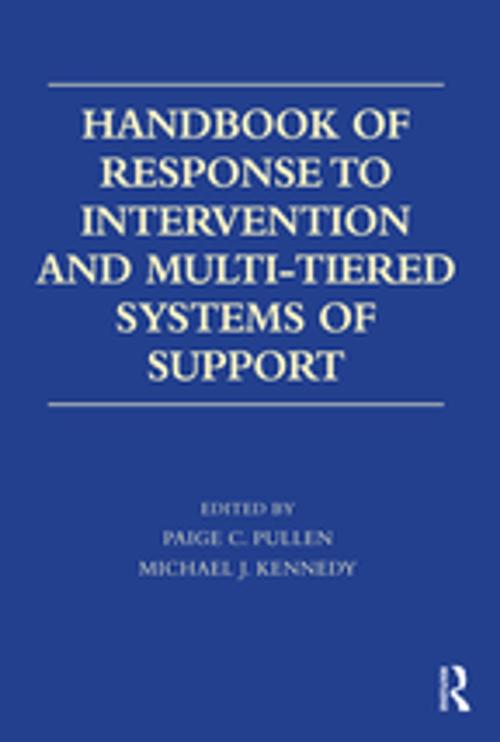Handbook of Response to Intervention and Multi-Tiered Systems of Support
Nonfiction, Reference & Language, Education & Teaching, Counseling & Guidance, Special Education| Author: | ISBN: | 9781136242496 | |
| Publisher: | Taylor and Francis | Publication: | October 4, 2018 |
| Imprint: | Routledge | Language: | English |
| Author: | |
| ISBN: | 9781136242496 |
| Publisher: | Taylor and Francis |
| Publication: | October 4, 2018 |
| Imprint: | Routledge |
| Language: | English |
Of the many issues facing special education (and general education) today, it is difficult to imagine one more important or timely than response to intervention (RTI). Almost overnight RTI has become standard practice across the nation. Unfortunately, RTI remains ill-defined, falls far short of its evidence-based practice goal, is almost invariably misused, and often results in more harm than good. Nevertheless, as a conceptual framework RTI has great potential for ensuring that students with disabilities receive appropriate, evidence-based instruction.
The mission of this handbook is to present a comprehensive and integrated discussion of response to intervention (RTI) and its relation to multi-tiered systems of support (MTSS) in both special education and general education. Although the two terms are currently used interchangeably, distinct differences exist between them. Therefore, chapters are dedicated to distinguishing the two concepts—RTI and MTSS—and describing each one’s unique role in both general and special education. In addition, the authors recommend a third term, Multi-Tiered Instruction, to differentiate the practices related to the purpose of the specific intervention.
Of the many issues facing special education (and general education) today, it is difficult to imagine one more important or timely than response to intervention (RTI). Almost overnight RTI has become standard practice across the nation. Unfortunately, RTI remains ill-defined, falls far short of its evidence-based practice goal, is almost invariably misused, and often results in more harm than good. Nevertheless, as a conceptual framework RTI has great potential for ensuring that students with disabilities receive appropriate, evidence-based instruction.
The mission of this handbook is to present a comprehensive and integrated discussion of response to intervention (RTI) and its relation to multi-tiered systems of support (MTSS) in both special education and general education. Although the two terms are currently used interchangeably, distinct differences exist between them. Therefore, chapters are dedicated to distinguishing the two concepts—RTI and MTSS—and describing each one’s unique role in both general and special education. In addition, the authors recommend a third term, Multi-Tiered Instruction, to differentiate the practices related to the purpose of the specific intervention.















